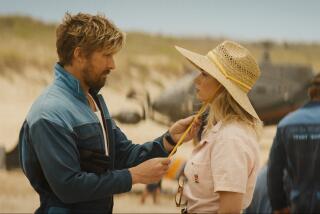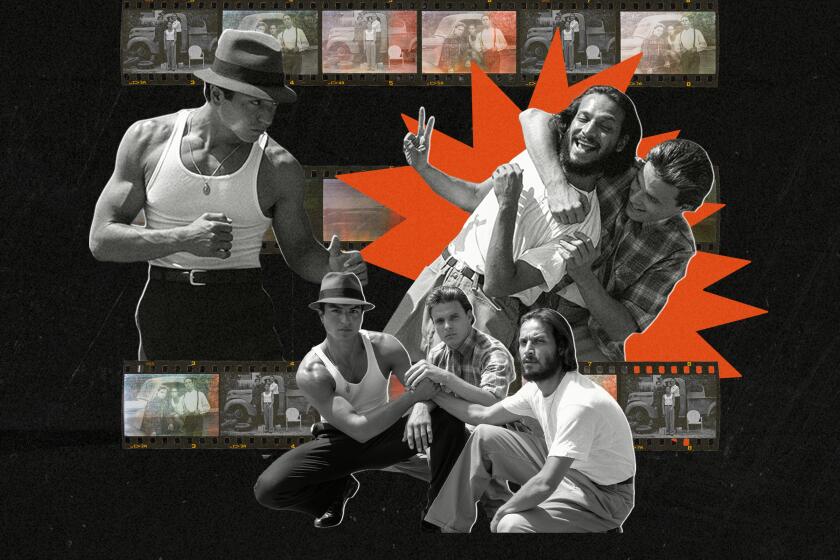Bishop Decries Free Publicity for ‘Temptation’ Movie
A Roman Catholic bishop who saw the Martin Scorsese-directed film “The Last Temptation of Christ” told his colleagues in the U.S. hierarchy Tuesday that the movie is “flawed both as theology and as cinema,” but he advised against giving it more publicity through protests.
Bishop Anthony Bosco of Greensburg, Pa., who chairs the bishops’ communications committee, wrote to other bishops in a letter released in Washington that the film, planned for fall release, is “neither as bad as some people think or as good as Scorsese thinks.”
“Is the film blasphemous? That is a judgment call,” he wrote.
“A concerted public effort on our part to indulge in picketing or issuing statements violently condemning the film as blasphemous will only result in giving free publicity,” Bosco added.
Vehement Protests
The film has become the target of vehement protest, largely by evangelical Protestants who have not seen the movie but have read an early version of the script. They are offended by the what they consider a depiction of Jesus as uncertain and self-accusatory and a dream sequence in which he makes love to Mary Magdalene.
The protesters, urging Universal Pictures not to release the film, have picketed the studio and threatened to boycott products and enterprises of Universal and its parent company, MCA Inc.
Universal has responded that it intends to go ahead with release of the movie and opposes the protest as an attempt at censorship.
Bosco was among a number of mainline and liberal church officials who were invited by Universal to a screening of the still uncompleted film July 12 in New York. Most of the church leaders who attended the screening and have discussed the film with reporters said they would not endorse attempts to suppress it.
Bosco has recommended that Catholics not see the movie, according to recent interviews he gave to his diocesan newspaper and to the San Bernardino Diocese’s weekly, Inland Catholic.
In the letter to the nation’s 365 bishops, however, Bosco made no such recommendation, noting that the bishops’ Department of Communications will eventually make a recommendation after seeing the finished version. Roman Catholic Archbishop Roger M. Mahony ofLos Angeles said last week that “initial indications” were that the New York-based office would classify the film as “morally offensive,” meaning it should be avoided.
The movie, filmed by Scorsese last fall in Morocco, stars Willem Dafoe as Jesus, Barbara Hershey as Mary Magdalene and David Bowie as Pontius Pilate. It is based on the 1955 novel of the same title by Nikos Kazantzakis, who also wrote “Zorba the Greek” and “The Poor Man of God” (about St. Francis of Assisi).
“With good theological advice and more cinematic restraint,” Bosco said, “Scorsese might have given us an excellent film. As it is, the film is flawed both as theology and as cinema.”
Bosco did not specify in his letter what he found theologically flawed in the movie.
But contacted by phone, Bosco said his principal theological concern was that “Christ seems to be accusing himself of sin, that he hasn’t been a good son to Mary and he asks Mary Magdalene to forgive him.”
“I don’t believe he could have committed sin,” he said.
Both novel and film have Jesus persuade Judas to betray him to authorities. Bosco said he took exception to Jesus telling Judas that turning him in was “the more difficult task” and that “the easier task” was the Crucifixion.
The “last temptation” of Christ--in the novel and in the film--is the temptation to reject Crucifixion and instead accept a Satanic offer to make love to Mary Magdalene and have a family. In the film, this is shown as a dream sequence. Christ rejects this temptation, however, and goes through with the Crucifixion that redeems humanity.
‘Rather Subdued’
“The sex in this (dream) sequence is probably rather subdued by modern-day film standards but would probably be considered objectionable by many, even if the Christ-figure were not involved,” Bosco wrote the bishops.
“The key concept, however, is that despite his struggle with the thought of Crucifixion, Christ ultimately does, in fact, reject the temptation and freely accepts his death on the cross in order to redeem humanity.”
Meanwhile, officials of the Anti-Defamation League of B’nai B’rith in Los Angeles, New York and Washington decried what they described as the anti-Semitic tone taken by some of the protesters.
More to Read
Only good movies
Get the Indie Focus newsletter, Mark Olsen's weekly guide to the world of cinema.
You may occasionally receive promotional content from the Los Angeles Times.






